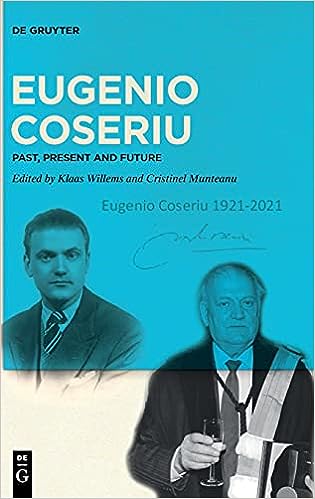

Most ebook files are in PDF format, so you can easily read them using various software such as Foxit Reader or directly on the Google Chrome browser.
Some ebook files are released by publishers in other formats such as .awz, .mobi, .epub, .fb2, etc. You may need to install specific software to read these formats on mobile/PC, such as Calibre.
Please read the tutorial at this link: https://ebookbell.com/faq
We offer FREE conversion to the popular formats you request; however, this may take some time. Therefore, right after payment, please email us, and we will try to provide the service as quickly as possible.
For some exceptional file formats or broken links (if any), please refrain from opening any disputes. Instead, email us first, and we will try to assist within a maximum of 6 hours.
EbookBell Team

4.0
56 reviewsThe volume is published on the occasion of the birth centennial of Eugenio Coseriu (1921–2002). It is the first collective volume to appear in English in which various scholars present a variety of perspectives on Coseriu’s scholarly work and discuss its continuing relevance for the language sciences. Coseriu’s international reputation has suffered from his commitment to publish in languages such as Spanish, German, French, Italian, Romanian and Portuguese, to the detriment of English. As a consequence, his work is less well-known outside Romance and German linguistics. The volume aims to raise the general awareness of Coseriu’s work among linguists around the world, in accordance with Coseriu’s own adage that it takes a constructive mindset (acknowledging "accomplishments and limitations") to do justice to all scholarly work in the humanities. The articles are organized into three major thematic clusters: 1) philosophy of language, 2) history of the language sciences and 3) theory and practice of "Integral Linguistics". The volume is essential reading for anyone working in these fields and for those seeking to gain deeper understanding of Coseriu’s goal to develop a unitary approach to language which takes as its point of departure the "activity of speaking".